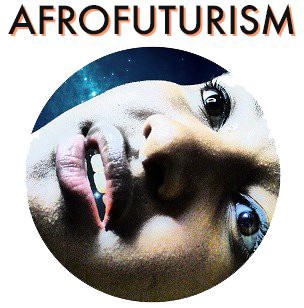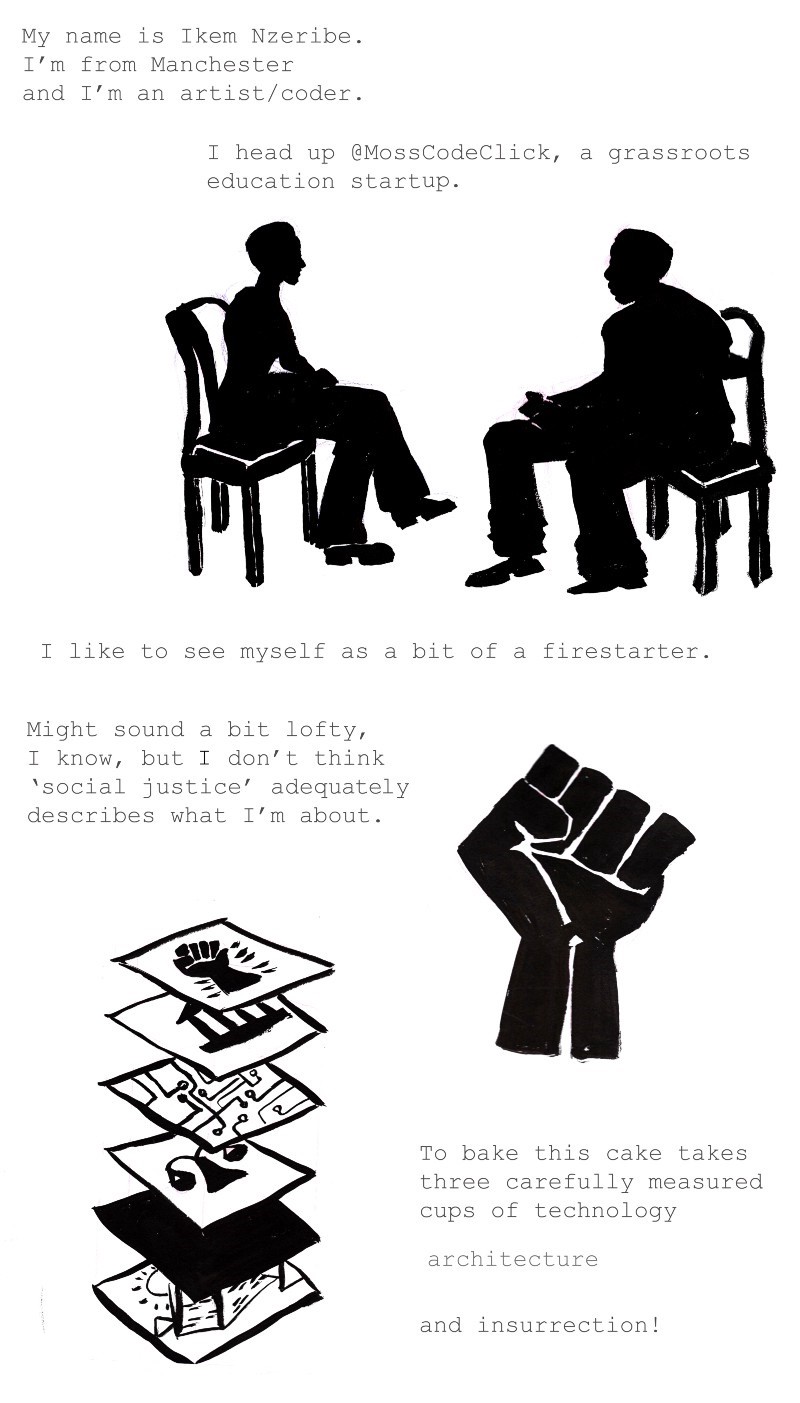
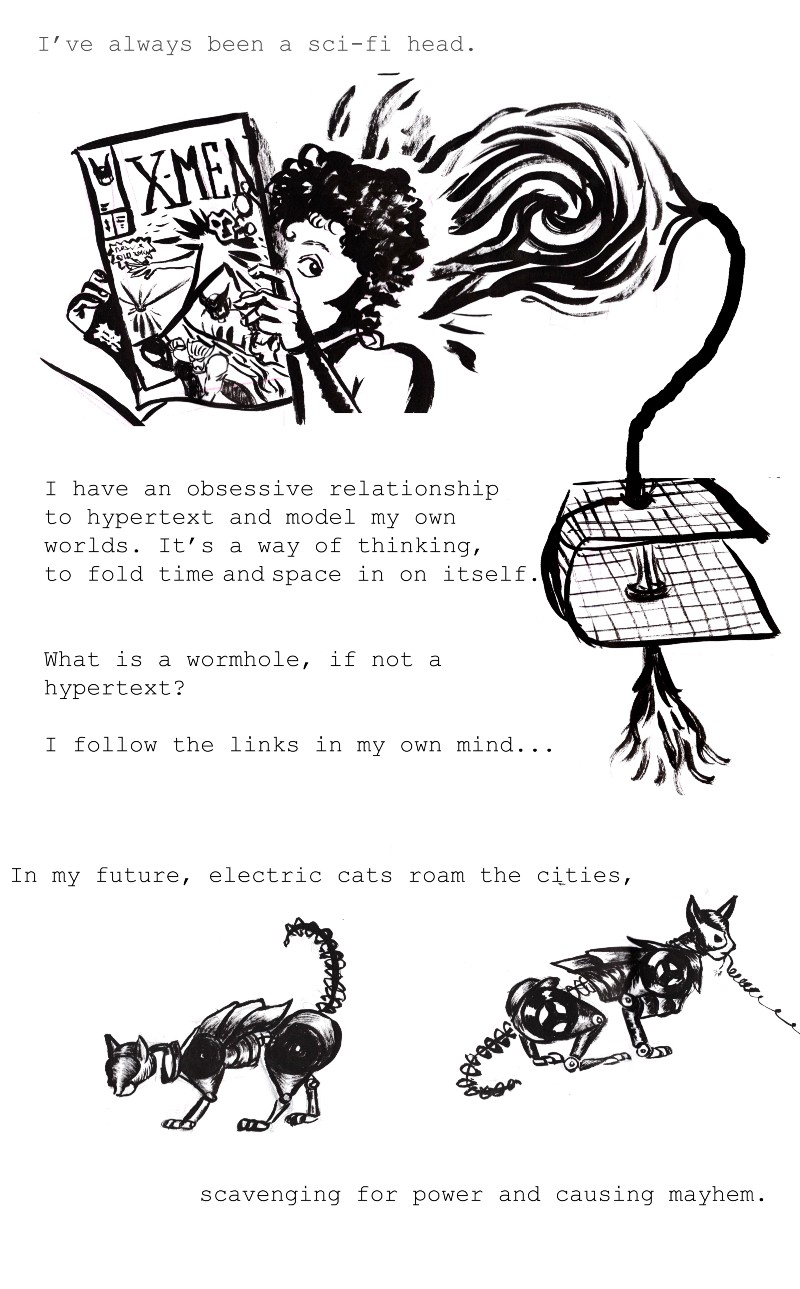
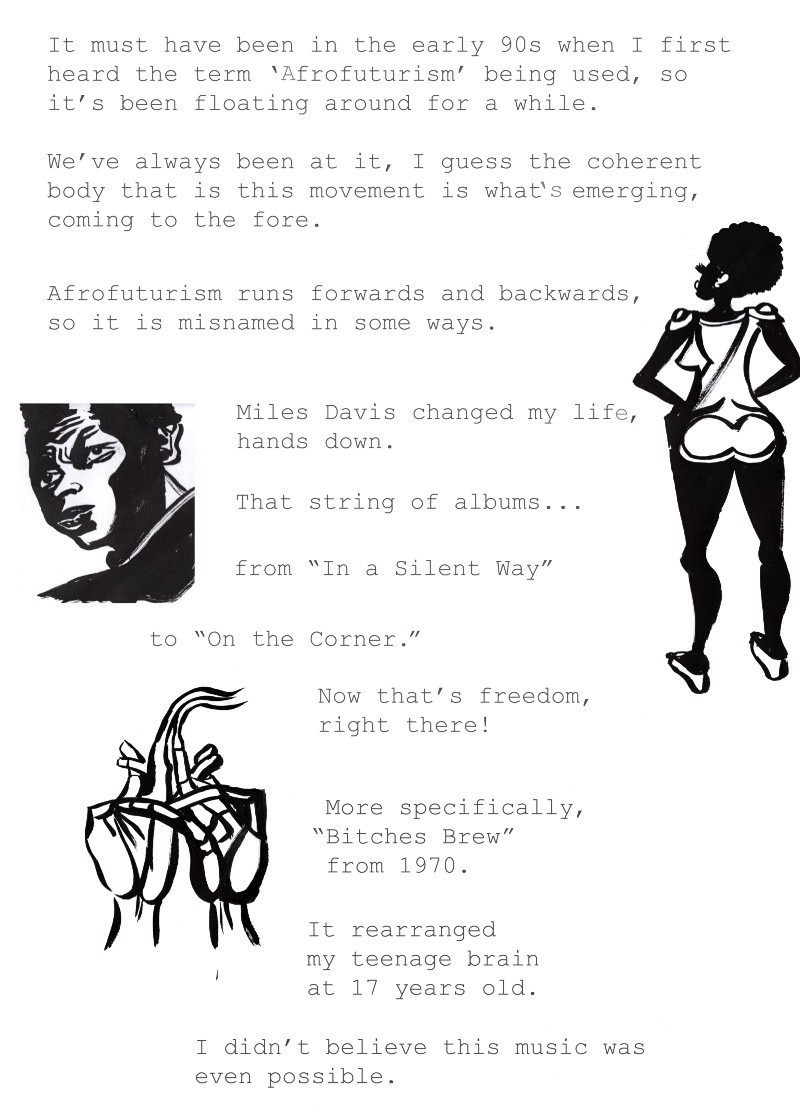
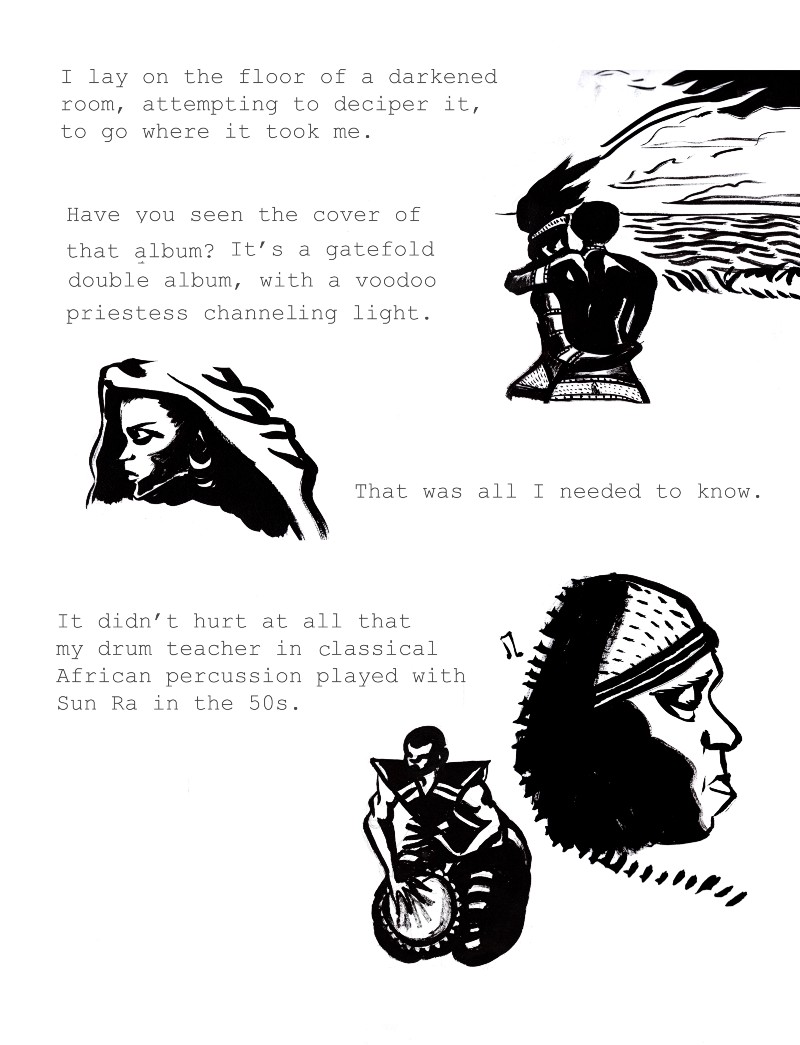
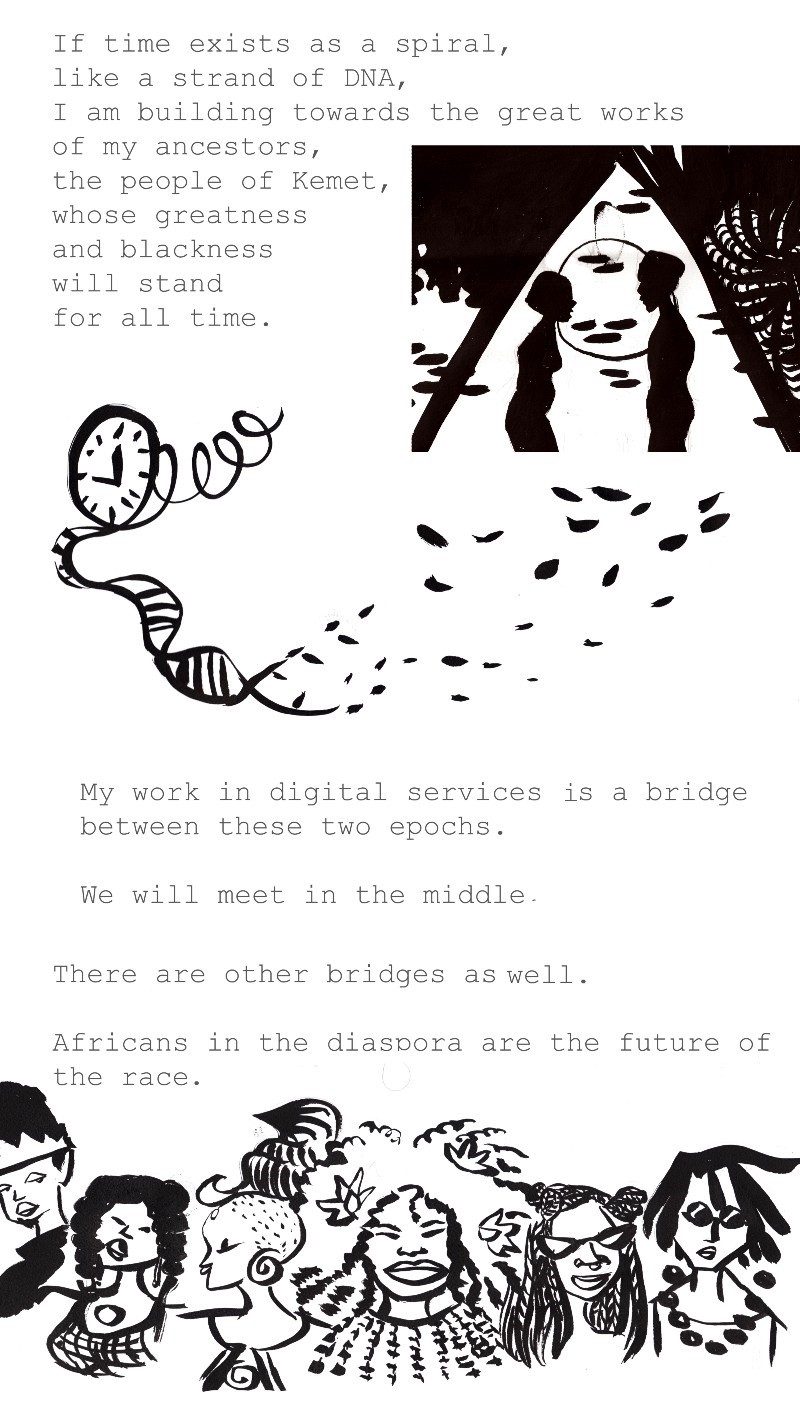
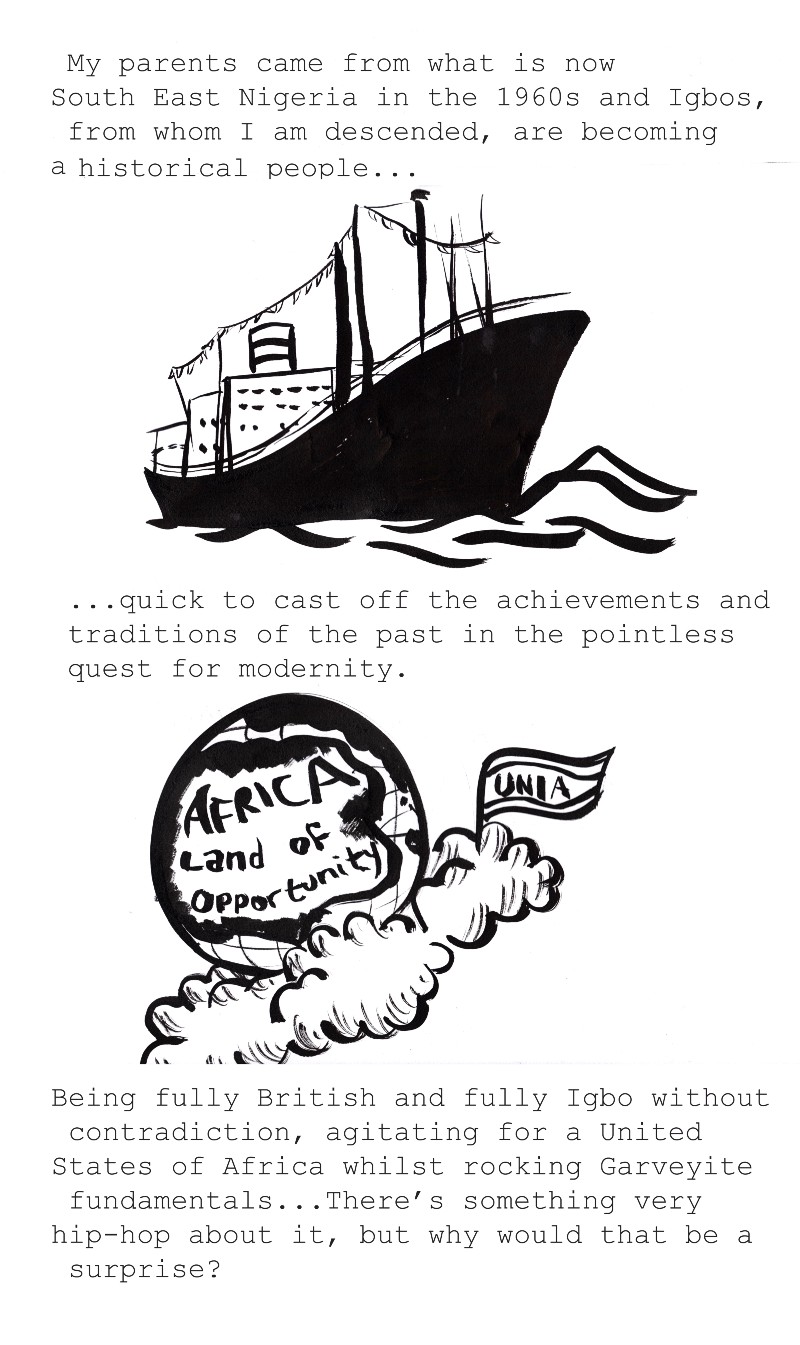
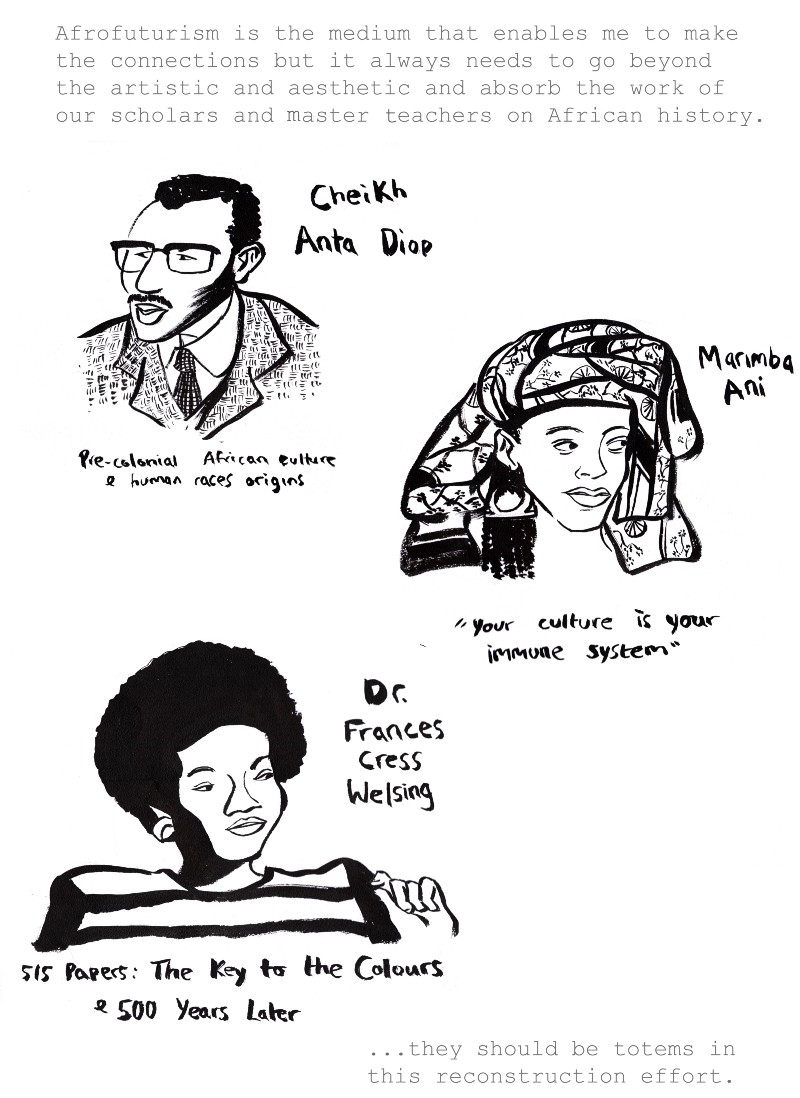
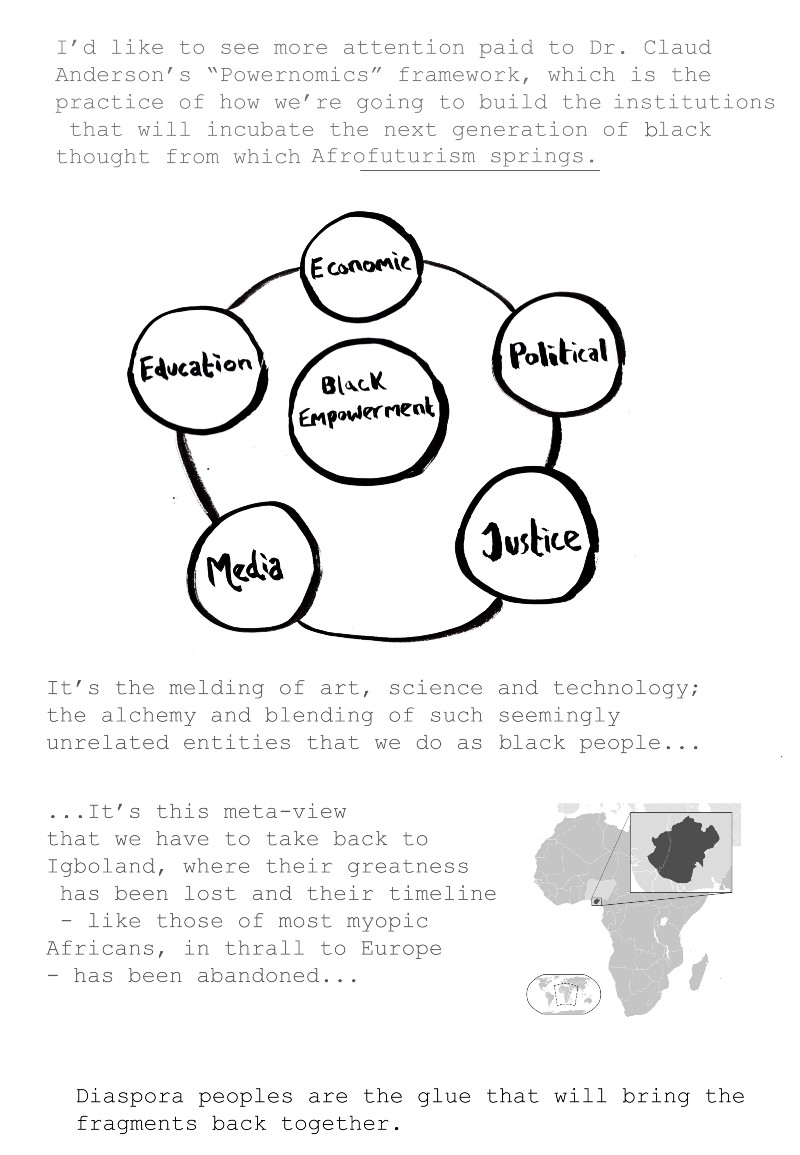
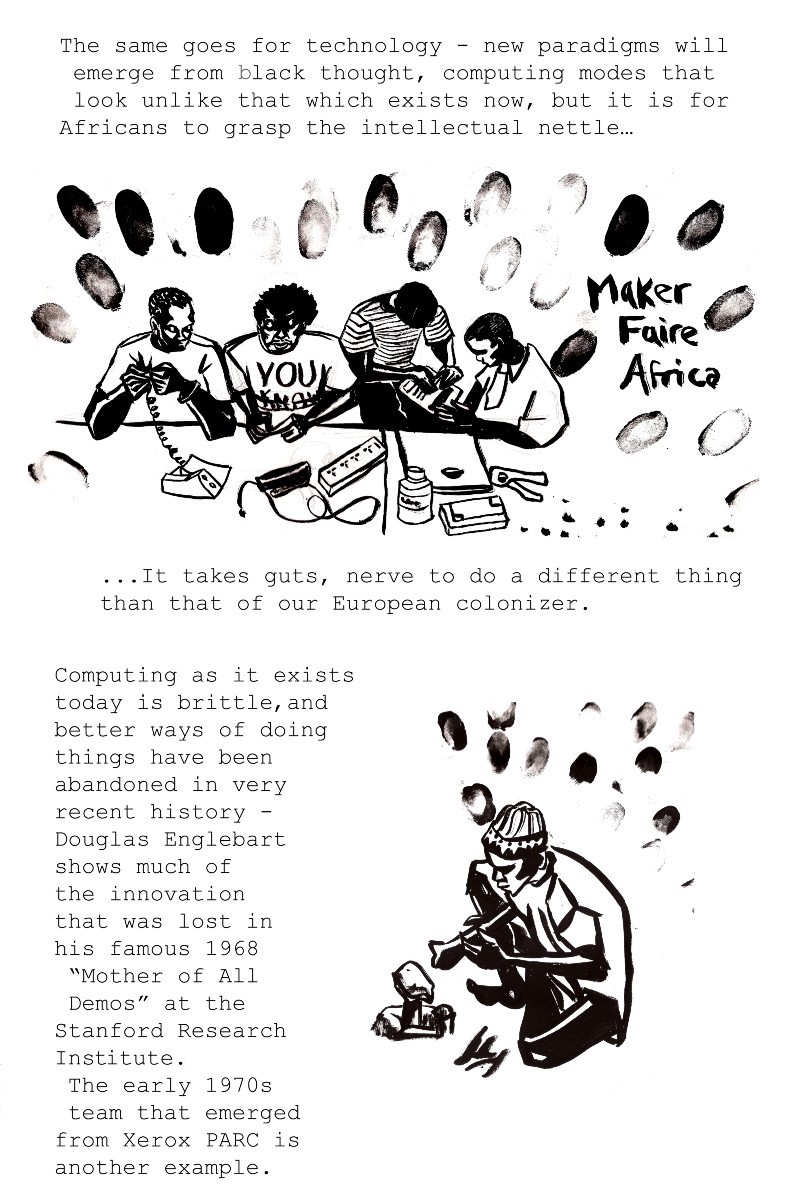
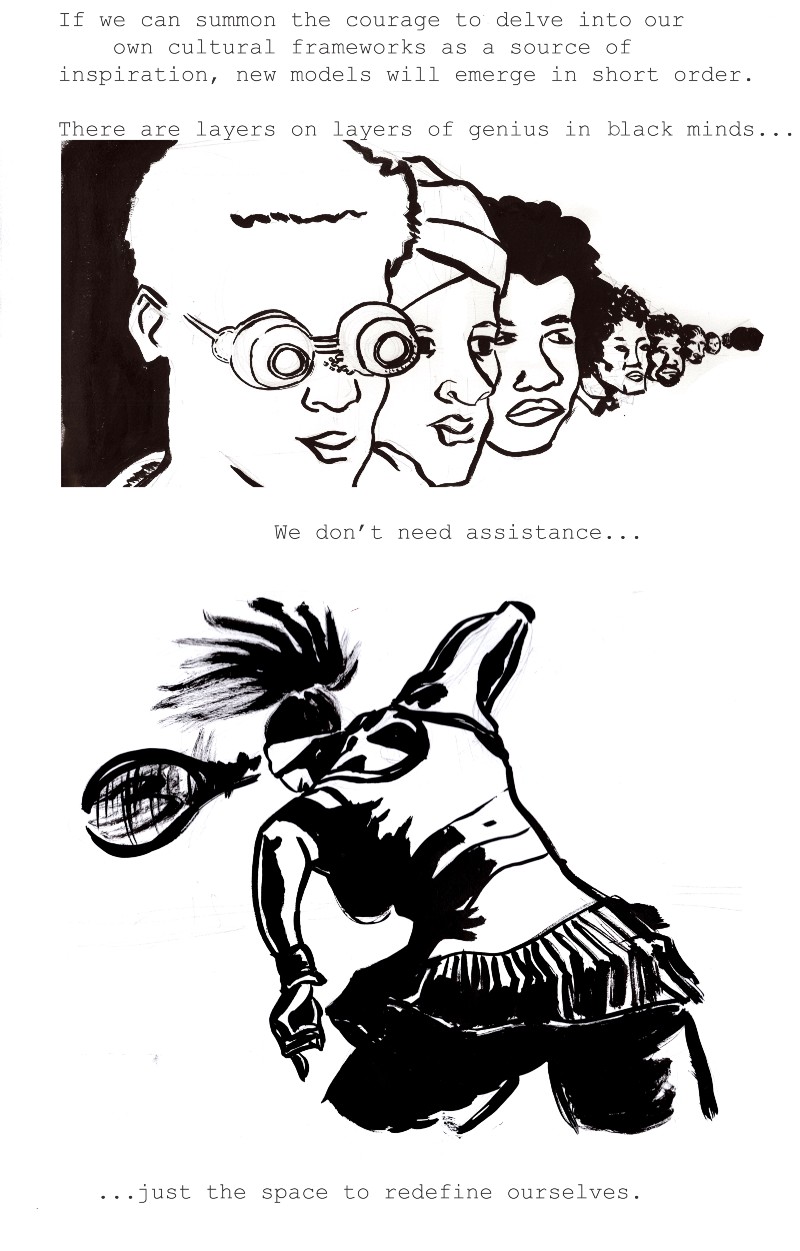
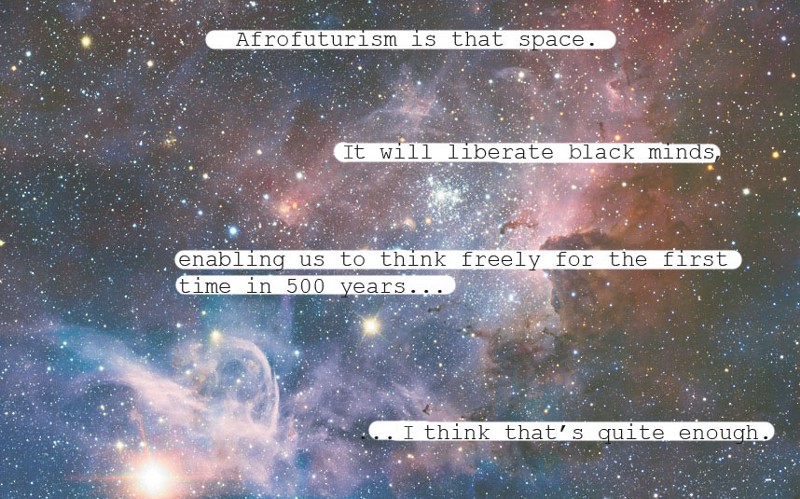
Words: Ikem Nzeribe
Interviewer: Florence Okoye
Artist: Charlotte M L Bailey
Ikem Nzeribe is a photographer, hacker, and self-described “technoprophet” based in Manchester, U.K. An active attendee of local tech meetups, he is also the founder of MossCode, a digital education startup in the heart of the historic black community of Moss Side. We asked him to share his thoughts about Afrofuturism and the international diaspora for this piece.

How We Get To Next was a magazine that explored the future of science, technology, and culture from 2014 to 2019. This article is part of our collection of conversations about Afrofuturism, curated and edited by Florence Okoye of Afrofutures UK. Click the logo to read more.

